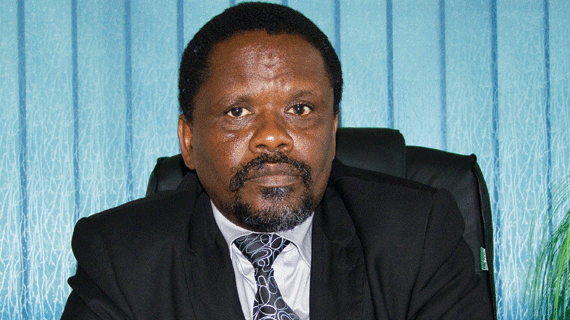
THE Catholic bishops at their Easter conference in 1983 made the following statement: “We entirely support the use of the army in a peacekeeping role.
What we view with dismay are methods that have been adopted for doing so, methods which should be firm and just have degenerated into brutality and atrocity.
We censure the frightful consequences of such methods. Violent reaction against dissident activity has to our certain knowledge, brought about maiming and death of hundreds and hundreds of innocent people who are neither dissidents nor collaborators.
“We are convinced by incontrovertible evidence that many wanton atrocities and brutalities have been and are still being perpetrated. We have already forwarded such evidence to the government.”
The late Nathan Shamuyarira referred to the bishops’ statement as irresponsible, contrived propaganda. On the other hand the then Prime Minister Robert Mugabe labelled the bishops as “mere megaphone agents of their external manipulative masters”.
He went on to call bishops a band of Jeremiahs.
According to Father Zimbabwe, the late Joshua Mqabuko Nyongolo Nkomo, perpetrators of Gukurahundi, the young men in camouflage uniforms with distinctive red berets, calling themselves the 5 Brigade were ex-Zanla combatants, trained by over one hundred North Koreans.
It is common cause that the 5 Brigade was commissioned by the government. In terms of the law of agency, the principal is liable for the actions of the agent.
- Chamisa under fire over US$120K donation
- Mavhunga puts DeMbare into Chibuku quarterfinals
- Pension funds bet on Cabora Bassa oilfields
- Councils defy govt fire tender directive
Keep Reading
The president at some point in time alluded to the fact that Gukurahundi was a time of madness. Later on this year he suggested that the 5 Brigade could have gone beyond its mandate.
This assertion in the absence of the correct mandate given to 5 Brigade does not hold water. The Speaker of Parliament in the Southern Eye of September 30 2014 came closer to the agitating point.
He gave an eye witness account and apportioned the blame of the atrocities to the 5 Brigade and the dissidents. However, if Nkomo’s version in his book, The Story Of My Life were to be chosen, the 5th Brigade and the dissidents were both on the State payroll.
Mudenda informs that the late Joseph Msika refused to assist in stopping the massacre. One would suggest that the late former vice-president Msika was in the same sinking boat with the late Father Zimbabwe and therefore could not assist in any way since he was also the hunted one.
We applaud the roles played by Mudenda, Cephas Msipa and the late reverend Canaan Banana in arranging for Father Zimbabwe and the then PM Mugabe to find each other, culminating in the Unity Accord of 1987.
South Africans went under a similar experience in the quest for reconciliation. The only difference was that black South Africans were dealing with Boers.
Bishop Desmond Tutu ably led the Truth and Reconciliation Commission. The said commission established the perpetrators of atrocities and the aggrieved.
The perpetrators apologised and the aggrieved forgave the perpetrators leading to healing of yesteryear wounds. One would suspect that Mudenda is an emissary sent to test the waters.
Alternatively, his conscience did not allow him to bottle in what his heart of hearts told him was wrong.
In pursuit of his submission, Mudenda indicates that when the new Constitution was being drafted parties ended up with the National Peace and Reconciliation Commission.
In his words Mudenda is of the view that justice on its own is not adequate. The truth and forgiveness must underpin the reconciliation process.
The Zimbabwe Catholic Bishops Conference secretary-general Fredereck Chiromba is of the view that sensitive issues like Gukurahundi need time to be discussed and analysed in order to gather cross section sentiments.
Zapu’s Matabeleland provincial chairperson John Zolani said the truth must be told about what happened as a means to avoid repeating same mistakes in future.
Dumisani Nkomo, chief executive officer of Habakkuk Trust said, owing to the physical and mental disturbance that the Midlands and Matabeleland people went through, there was need to address the issue with the seriousness it deserved.
When Mugabe was quoted saying the 5 Brigade may have behaved as loose cannons this would seem to have been a facesaver. As commander in-chief, the buck stops at his door.
The honest and respectable way for him to do is either to establish a Truth, Peace and Reconciliation Commission or unconditionally admit wrongdoing during the time of madness.
It would then be up to the affected people to accept his confession or not. It is improper to suggest to the country that the president was unaware of what was taking place in the fog of war during the Gukurahundi genocide.
Moses Tsimukeni Mahlangu is the general-secretary for Zimbabwe Urban Councils Workers’ Union. He is a labour consultant and arbitrator.
Feedback: E-mail: [email protected]










